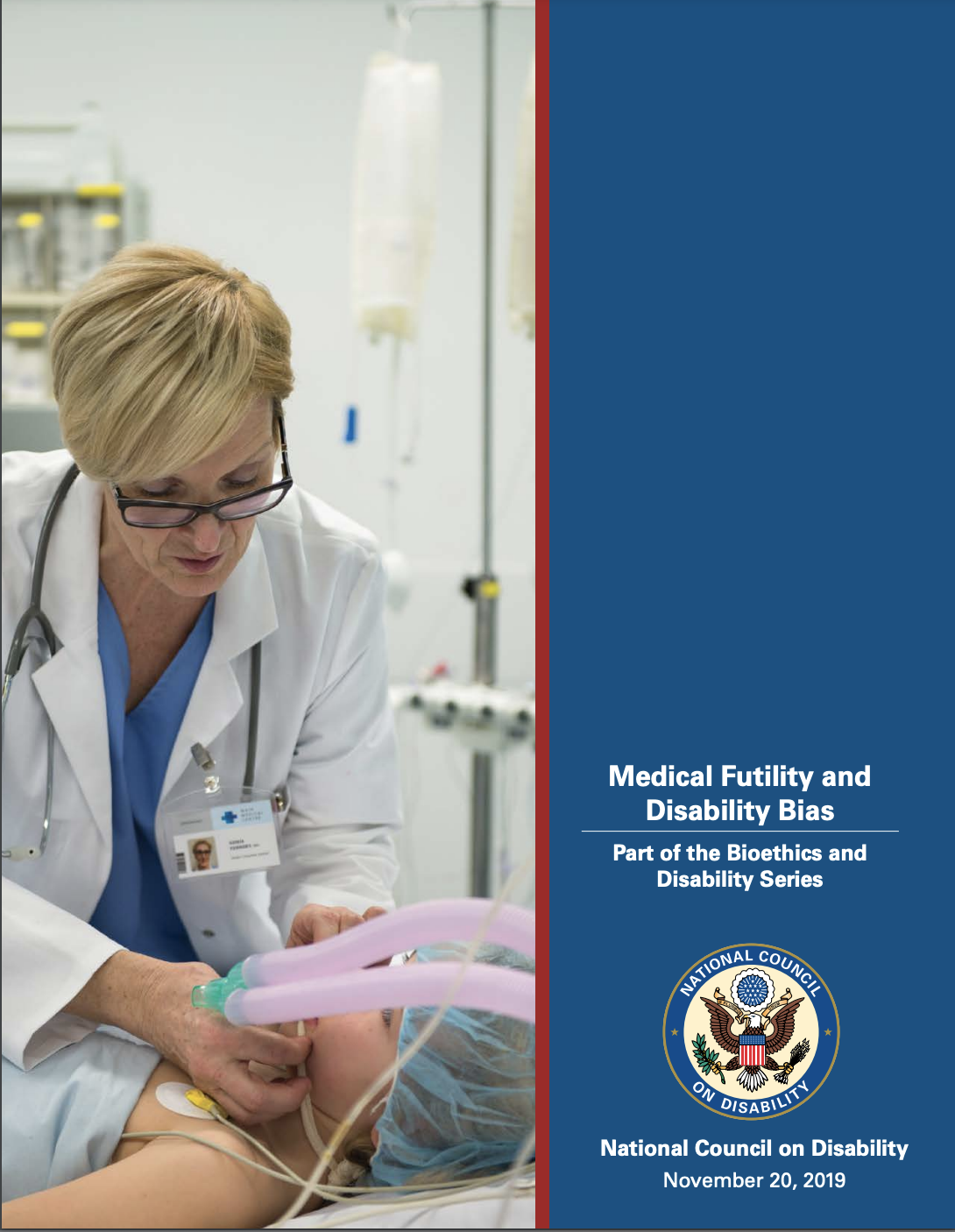Medical Futility and Disability Bias

BACKGROUND AND SCOPE:
Despite the growing understanding that disability is a normal part of the human experience, the lives of persons with disabilities continue to be devalued in medical decision-making. Negative biases and inaccurate assumptions about the quality of life of a person with a disability are pervasive in U.S. society and can result in the devaluation and disparate treatment of people with disabilities, and in the medical context, these biases can have serious and even deadly consequences. In this series of reports on bioethics, the National Council on Disability will explore how people with disabilities are impacted by biases and assumptions in some of the most critical healthcare issues we face, including:
- Medical futility —Health care providers’ subjective judgments about whether a patient’s life is “worth living” often influences their decisions regarding whether to withdraw or withhold medical care. This report examines multiple perspectives on medical futility decisions relating to people with disabilities and analyzes how state and federal laws can be strengthened to prevent disability bias from impacting critical health care decisions.

